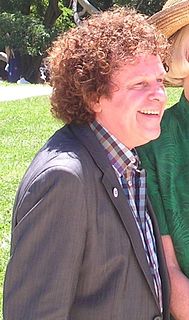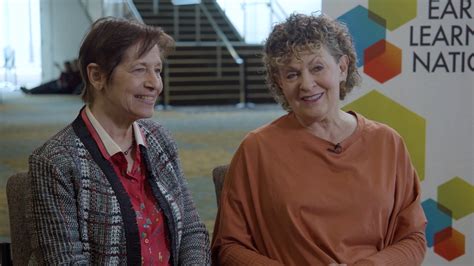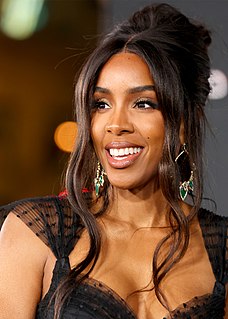A Quote by Leo Sayer
People with learning difficulties are often creative in different ways.
Quote Topics
Related Quotes
At school, when kids are being encouraged to get the one right answer and fill in that bubble, people can do things that enable their children to solve problems in multiple ways: "Can you think of different ways to make the bed?" It costs nothing, and the child is learning, "I have good ideas, I can be creative, and I can show you that I have confidence."
What you really have to do, if you want to be creative, is to unlearn all the teasing and censoring that you've experienced throughout your life. If you are truly a creative person, you know that feeling insecure and lonely is par for the course. You can't have it both ways: You can't be creative and conform, too. You have to recognize that what makes you different also makes you creative.
And then there are difficulties. Computers are famous for difficulties. A difficulty is just a blockage from progress. You have to try a lot of things. When you finally find what works, it doesn't tell you a thing. It won't be the same tomorrow. Getting the computer to work is so often dealing with difficulties.
One of the things that Baidu did well early on was to create an internal platform for deep learning. What that did was enable engineers all across the company, including people who were not AI researchers, to leverage deep learning in all sorts of creative ways - applications that an AI researcher like me never would have thought of.
Kids are so busy with different things and are occupied with other things, so when they do find themselves to be creative, it's often that they can be creative in the kitchen and they get the opportunity to bond with family, friends and talk. It just opens up their lines of communication. We need that now for these young people.
We can cooperate more easily with those who more easily intelligible to us, who are more familiar to us. But the advantages of specialization of labor often push us in the direction working with people who have different strengths and viewpoints than we do. I think that this is one major reason why moralities are always subject to change, because some of the people we cooperate with are going to be different from us in ways that often lead them to have different value orientations than we have; and interacting with them can change us.




































